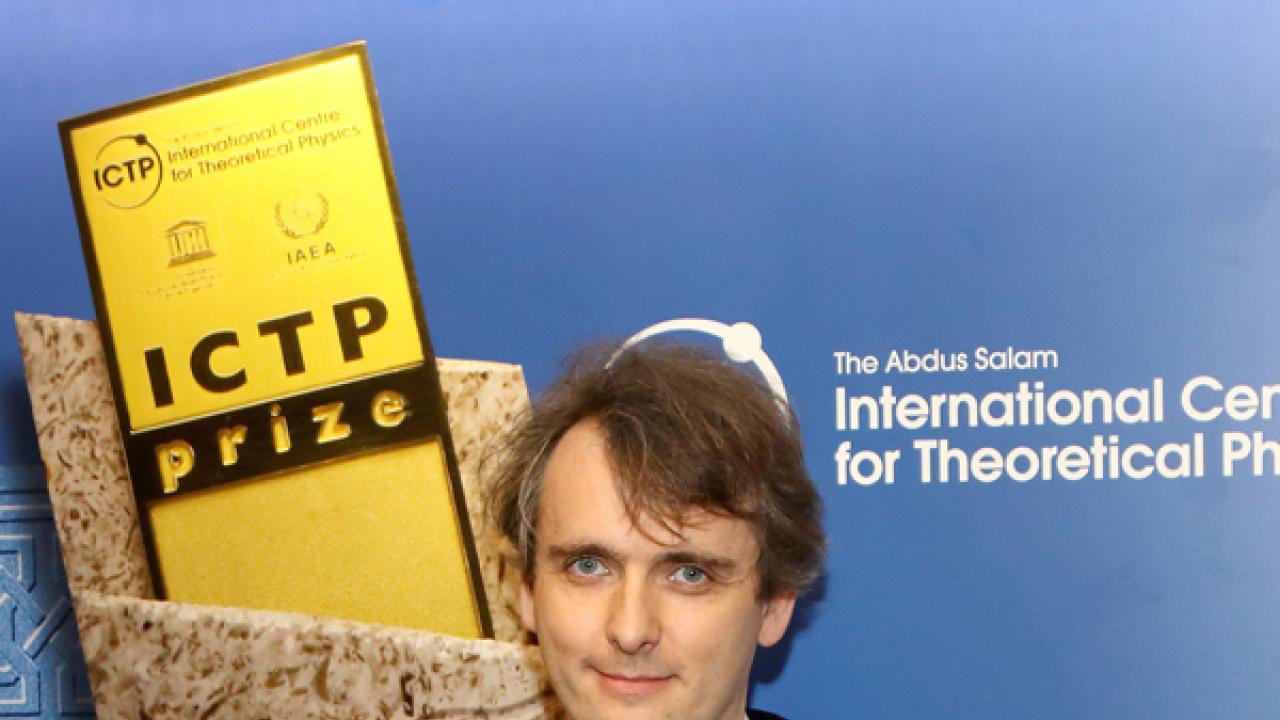
Computers as we know them today--and indeed all modern electronics--would not be possible without transistors, those microscopic devices made of semiconductor materials that distribute electric signals. The more transistors a device has, the faster the device works. Due to the rapid rate of technological development, experts have observed that the number of transistors in a device (and hence the performance) doubles roughly every two years according to what they call "Moore's Law". To fit so many transistors into a device, manufacturers must make them ever smaller--shrinking to atomic levels--and experts worry that they could reach the limits of miniaturization and Moore's Law.
ICTP Prize 2014 recipient Pablo Cornaglia's research aims to stretch that limit: he investigates whether transistors could be made out of single molecules. These would lead to more densely packed circuits that would extend the range of validity of Moore’s Law, making even smaller, faster and more efficient computers. He outlined his latest research during the ICTP Prize ceremony that was held at ICTP on 14 August 2015.
"The idea is that one could build these electronic components using the smallest objects that we can manipulate," says Cornaglia, adding, "But the problem is that the physics is completely different. You need to understand everything in a different way."
Cornaglia, a condensed matter physicist from Argentina, is currently a CONICET (the National Scientific and Technical Research Council in Argentina) scientist at the Bariloche Atomic Center, as well as a professor at the Instituto Balseiro (also in Bariloche) located 1600 km south of the capital, Buenos Aires. His research on such topics as electronic transport through nanostructures and quantum impurity problems has led to a better understanding of how interactions between electrons and quasiparticles known as phonons affect certain properties in nanosystems.
Creating transistors out of single molecules could be a "holy grail" of computing, but as a technology on the cutting edge of nanophysics it will require much time to work out the quirks of building such a device. "With semiconductor electronics you know what each of the components do and then you put them together. With molecular transistors it can be more complicated: you can put two things together and they can work in a completely different way because of interactions between them," explains Cornaglia. He says that although there have been some advances using carbon nanotubes to create circuits, researchers are still a long way off from replacing silicon-based transistors in real applications.
Until then, Cornaglia--who has had a passion for electronics since high school--will continue his award-winning research, as well as creating local and international networks of physicists to encourage the exchange of ideas and techniques. ICTP has cultivated an ongoing collaboration with Bariloche for years, exchanging scientists and providing funding for Argentinian scientists to attend conferences and workshop in Trieste. Indeed, Cornaglia's doctoral advisor was ICTP Associate Carlos Balseiro, who encouraged the young physicist to attend his first international conference at ICTP in 2000. The Argentinian represents a success story not only for his native country, but for ICTP, whose nurturing of scientists in developing countries reaps immeasurable rewards.
Related Link:
















